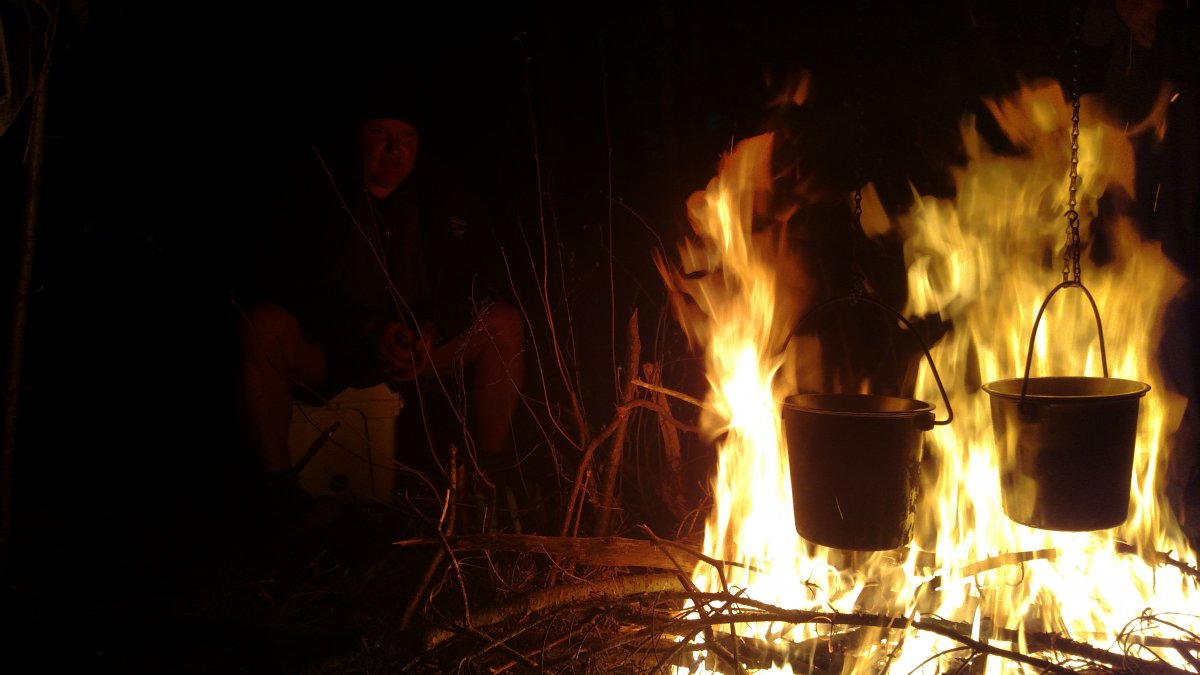We just finished the spring 2019 semester, and it’s good to be back home for a spell before we jump into the summer programming at Jack Mountain and School Of The Forest.
The semester was a challenging one for students. Spring in northern Maine is a tough time to be on the land. It’s cold when we arrive, and as soon as it warms up the bugs are out in force. Towards the end of the program, as we start to get closer to summer, Maine is prone to thunderstorms and heavy rains as the moisture in from the spring melt cooks off.
This allowed for a great real world challenge in fire lighting for our students, and served as a reminder for me that no matter how hard Tim and I work to create learning situations for students, the natural world will always provide us with a better, more rewarding situation. It’s why participation in a long term stretch of living on the land with little infrastructure is so effective at creating competency for basic skills.
“Anyone can light a fire when its been dry for a few days, but it takes relatively deep understanding to do so when most of the materials are damp or soaked through.”
We practice wet weather fire from week one. Learn the process in a literal “dry run”, and then slowly ramp up the challenge level throughout the course. Students can pretty much expect that if it rains overnight or in the early morning, the first thing we’ll be doing is sending them out to harvest materials for a fire and establish it, no matter how wet it is. We consider this a baseline skill for guides and outdoorsmen. It shows a working knowledge of fire, basic principles of forest ecology and the effects of rain on the landscape. Anyone can light a fire when its been dry for a few days, but it takes relatively deep understanding to do so when most of the materials are damp or soaked through.
On the third day of our final trip of the semester, we woke up to deep fog and winds out of the south. The rain those conditions brought was unrelenting, and soaked us, the gear in our boats and brought the water levels in the river up incredibly quickly. So when we finally arrived at our campsite, students immediately began working to get a fire going. The rain had turned into an outright downpour, and the temperature was low enough that hypothermia was a genuine concern.
The process forced students to work together as a team in a way Tim or I could never have done. Some students used their bodies as shelter for the small flame once it was established, while others prepped more kindling and tinder to feed it. As it grew, they held kindling over it to start it drying for the next phase. It was great to watch them communicate, and try different approaches. The entire process took fourty-five minutes, with a few false starts. The flame would start, and then the ammout of moisture in the air would simply make it choke as it touched the still soaked wood.
Once it caught though, and turned into a fire big enought to catch anything we put on it, the students had the biggest smiles I’d seen on them the whole course. They stood around it, drying out drenched clothes, and staring at this fire that refused to be put out by the still torential opening of the sky.
That’s an experince they’ll never forget, and it created a bond in them that no ammount of trust falling, or other “team building” excercise would ever accomplish. It was also a reality check. It’s easy to say “I can light a fire in the rain, I know the methods”, but having done so in truly challenging conditions makes that skill deep seated, and truly owned by the individual.
Yet again, nature proves to be a better educator than I’ll ever be, and I wouldn’t want it any other way.








